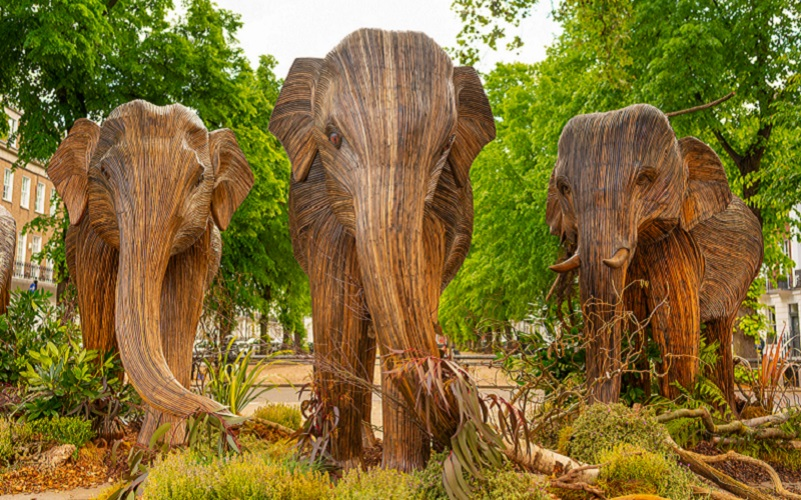
From 2012 to 2015, The Rufford Foundation funded Tarsh Thekaekara in India for a project helping local communities deal with one of the world’s worst invasive plant species, Lantana camara. This innovative project has had an unusual and spectacular result – a herd of 125 elephants in the parks of London (http://elephant-family.org/news-views/events/coexistence-launches-on-the-mall/), organised in collaboration with Elephant Family, an organisation also supported by The Rufford Foundation. Through their NGO Coexistence (www.coexistence.org), the project employed local artisans to create life-sized sculptures of elephants, highlighting both the threat from invasive species and the fragile populations of elephants in the Nilgiri Hills. The £11,000 from The Rufford Foundation partly contributed to 70 indigenous artisans being employed for 4 years with a total income of over £180,000. The whole project is likely to raise in excess of £1 million for conservation. Not only that, recently the project has used Lantana to make pre-fabricated Covid-19 isolation huts for indigenous communities in remote villages who have no space for sick people to isolate – a true win-win result.
https://youtu.be/XeG99thSs0w https://www.thehindu.com/news/cities/Coimbatore/isolation-centres-coming-up-in-tribal-villages/article34609676.ece